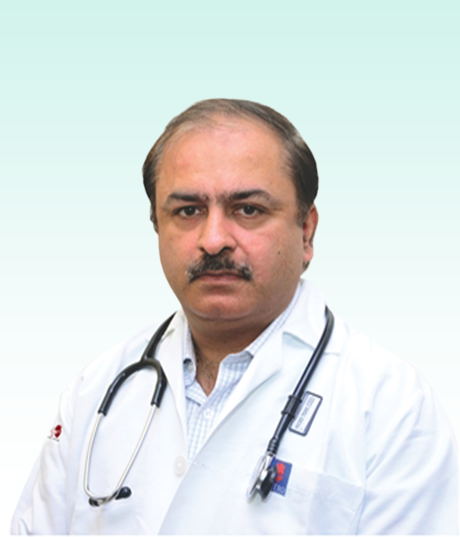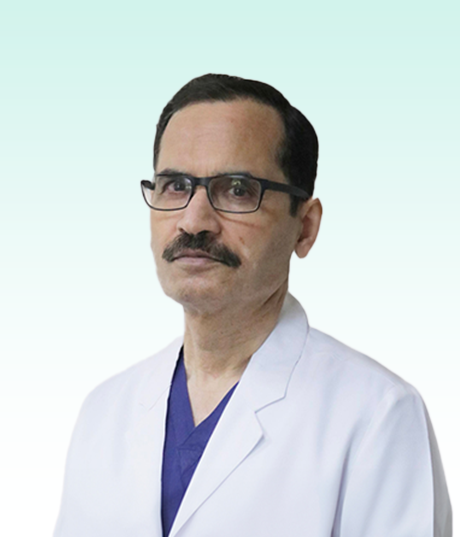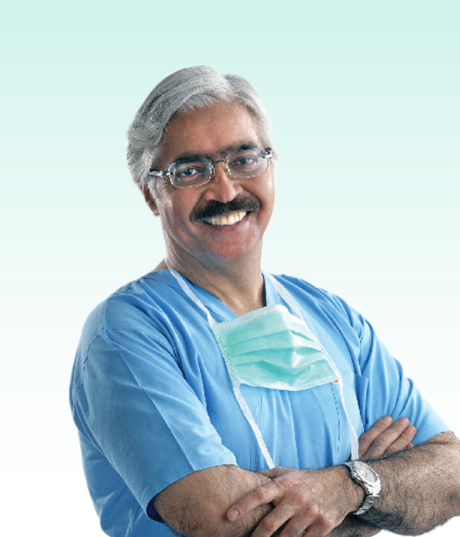Coronary Heart Bypass Surgery (CABG)
Coronary Artery Bypass Graft (CABG) surgery is a surgical procedure that is performed to treat patients with blocked or narrowed coronary arteries. This procedure involves taking a healthy blood vessel from another part of the body and grafting it to the blocked or narrowed coronary artery to restore blood flow to the heart muscle.
CABG surgery can significantly improve a patient’s quality of life and reduce the risk of heart attack.
Who Needs CABG Surgery
CABG surgery is typically recommended for patients who have significant blockages in their coronary arteries that cannot be treated with medication or other non-surgical interventions. Patients who have had a heart attack or who have a high risk of experiencing a heart attack may also benefit from CABG surgery.
When to See a Specialist
Patients who experience chest pain, shortness of breath, or other symptoms of heart disease should consult with a Cardiologist.
Procedure
The procedure of coronary artery bypass graft surgery typically involves the following steps:
- Anesthesia: The patient is given general anesthesia to put them to sleep during the surgery.
- Harvesting grafts: The surgeon will make an incision in the chest or leg to harvest healthy blood vessels, which will be used as grafts to create new routes for blood flow around the blocked arteries.
- Opening the chest: A surgeon will make an incision in the chest to access the heart.
- Stopping the heart: The surgeon will temporarily stop the heart and divert blood flow to a heart-lung bypass machine, which will oxygenate and pump blood throughout the body.
- Creating bypasses: The surgeon will attach the grafts to the blocked coronary arteries, creating new routes for blood flow around the blockages.
- Closing the chest: The surgeon will close the chest incision with stitches or staples.
- Recovery: After the surgery, the patient will be monitored in the hospital for several days to ensure that the heart is functioning properly. They will also receive medications to manage pain and prevent infection.
- Rehabilitation: The patient will begin a rehabilitation program to help them regain strength and mobility.
Road To Recovery
Recovery from CABG surgery can take several weeks or months. During this time, the patient will need to rest and avoid strenuous activities. They will also need to take medications to manage pain and prevent blood clots. It is important for patients to follow their healthcare provider’s instructions for post-operative care to ensure a successful recovery.
Risk Management
As with any surgical procedure, CABG surgery carries certain risks and complications. These can include infection, bleeding, and damage to surrounding organs.
- There is also a risk of complications associated with the use of general anesthesia.
- Patients who have multiple blockages or who have had previous heart surgeries may be at higher risk for complications.
Benefits of CABG Surgery
The benefits of CABG surgery can be life-changing for patients with coronary artery disease:
- Improved Blood Flow: CABG surgery can improve blood flow to the heart by bypassing blocked or narrowed coronary arteries, reducing the risk of heart attack and other complications.
- Symptom Relief: CABG surgery can alleviate symptoms of coronary artery disease, such as chest pain, shortness of breath, and fatigue, improving the patient’s quality of life.
- Long-Term Survival: CABG surgery has been shown to improve long-term survival rates for patients with significant coronary artery disease compared to medical management alone.
- Improved Heart Function: By improving blood flow to the heart, CABG surgery can improve the overall function of the heart and reduce the risk of heart failure.
Frequently Asked Questions
1. What is a cardiac condition?
A cardiac condition refers to any condition that affects the heart or the blood vessels that supply blood to the heart. This can include conditions such as coronary artery disease, heart failure, arrhythmias, and congenital heart defects.
2. What are the common symptoms of a cardiac condition?
The symptoms of a cardiac condition can vary depending on the specific condition, but common symptoms include chest pain, shortness of breath, fatigue, dizziness, palpitations, and swelling in the legs or ankles.
3. What are the risk factors for developing a cardiac condition?
The risk factors for developing a cardiac condition include high blood pressure, high cholesterol, diabetes, obesity, smoking, a family history of heart disease, and a sedentary lifestyle.
4. How are cardiac conditions diagnosed?
Cardiac conditions can be diagnosed through a variety of tests, including electrocardiograms (ECGs), echocardiograms, stress tests, cardiac catheterization, and angiograms.
5. What are the treatment options for cardiac conditions?
The treatment options for cardiac conditions depend on the specific condition and the severity of the symptoms. Treatment options can include lifestyle changes, medications, procedures such as angioplasty or stenting, and surgery such as bypass surgery or valve replacement.
Treatians As The Best Choice
Treatians understand that seeking medical treatment abroad can be a daunting experience for patients and their families. That’s why the company offers end-to-end support to its clients, from the initial consultation to post-treatment care. The company provides personalized treatment plans that are tailored to meet the individual needs of each patient, and its team of dedicated professionals is always on hand to provide guidance and support throughout the entire process. Contact us at +91-7982312582, drop your email [email protected]
- Trauma & intensive care
- Aged Care
- Community Services
- Diagnosis & Investigation
- Medical & Surgical
- Mental Health
- Rehabitation
- Specialised Support Service























